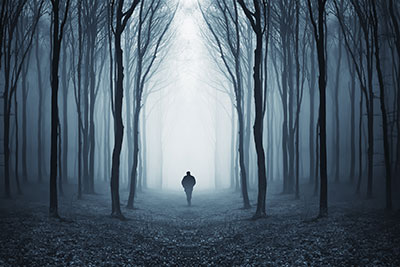 Grief and depression are similar, sharing some of the same symptoms. Yet each is a distinct experience and understanding the distinction is important for several reasons. For many people, receiving a diagnosis of depression and seeking treatment can be literally life-saving. In contrast, experiencing grief due to a significant loss is not only normal but can ultimately be very healing.
Grief and depression are similar, sharing some of the same symptoms. Yet each is a distinct experience and understanding the distinction is important for several reasons. For many people, receiving a diagnosis of depression and seeking treatment can be literally life-saving. In contrast, experiencing grief due to a significant loss is not only normal but can ultimately be very healing.
People go through common stages of grief including denial, numbness, and shock. Initial numbness is a normal reaction to a death or loss. This stage of grief helps protect us from experiencing the intensity of the loss all at once. It’s useful when we have to take action, such as planning a funeral or notifying friends and family. As a person moves through the numbness and begins to acknowledge its impact, the initial denial and disbelief fades.
Where grief and depression differ is that grief usually decreases over time and tends to occur in waves that are triggered by reminders of the loss. In this instance, the person experiencing grief can feel relatively better in certain situations, such as when they are around friends and family. However, triggers like the anniversary of the loss can cause the feelings of grief to resurface.
On the other hand, moderate and major depression tends to be more consistent. A person with these types of depression tend to exhibit symptoms that are the opposite of those commonly experienced with grief, such sleeping and more or less, and gaining or losing weight.
When Grief Becomes Depression
Because grief has several symptoms in common with major depressive disorder, it can be hard to differentiate the two. Both can have intense sadness, insomnia, poor appetite, and weight loss. Unfortunately, grief can sometimes develop into complicated grief which does not dissipate with time and can feels a lot like depression. If the depressive –like symptoms of grief become bad enough, the person may be diagnosed with major depression.
Treatment for Grief
While grief can be very painful, there is usually no treatment for it other than psychotherapy. Some exceptions to this include when grief-related anxiety or depression is so bad that it interferes with daily life or sleep. In this case, medication may be helpful.
If you don’t know if you’re experiencing grief or depression, it’s helpful to talk to a therapist who can help you make the distinction. If your symptoms are related to normal grieving of a loss, they will probably improve over time. Grief is the mind’s way of working through difficult and traumatic experiences.
When you lose someone or something that’s important to you, it’s natural to feel sorrow and grief. The grief process is normal and everyone goes through it. But if grief takes over your life and you begin to feel hopeless, helpless and worthless, it’s time to talk to your therapist about the difference between normal grief and depression.
Dr. Randi Fredricks, Ph.D.
Author Bio
Dr. Randi Fredricks is a leading expert in the field of mental health counseling and psychotherapy, with over three decades of experience in both research and practice. She holds a PhD from The Institute of Transpersonal Psychology and has published ground-breaking research on communication, mental health, and complementary and alternative medicine. Dr. Fredricks is a best-selling author of books on the treatment of mental health conditions with complementary and alternative medicine. Her work has been featured in leading academic journals and is recognized worldwide. She is actively involved in developing innovative solutions for treating mental health. To learn more about Dr. Fredricks’ work, visit her website: https://drrandifredricks.com
References
Assareh AA, Sharpley CF, Mcfarlane JR, Sachdev PS. Biological determinants of depression following bereavement. Neurosci Biobehav Rev. 2015;49:171-81.
Francis LE, Kypriotakis G, O’Toole EE, Bowman KF, Rose JH. Grief and risk of depression in context: the emotional outcomes of bereaved cancer caregivers. Omega (Westport). 2015;70(4):351-379.
Shear MK. Complicated grief. N Engl J Med. 2015;372(2):153-160.
Lutz M, Morali A, Lang JP. Atypical depression: Clinical perspectives. Encephale. 2013;39(4):258-264.
Ribeiro Â, Ribeiro JP, Von Doellinger O. Depression and psychodynamic psychotherapy. Braz J Psychiatry. 2018;40(1):105-109.
Zisook S, Shear K. Grief and bereavement: What psychiatrists need to know. World Psychiatry. 2009;8(2):67-74.

